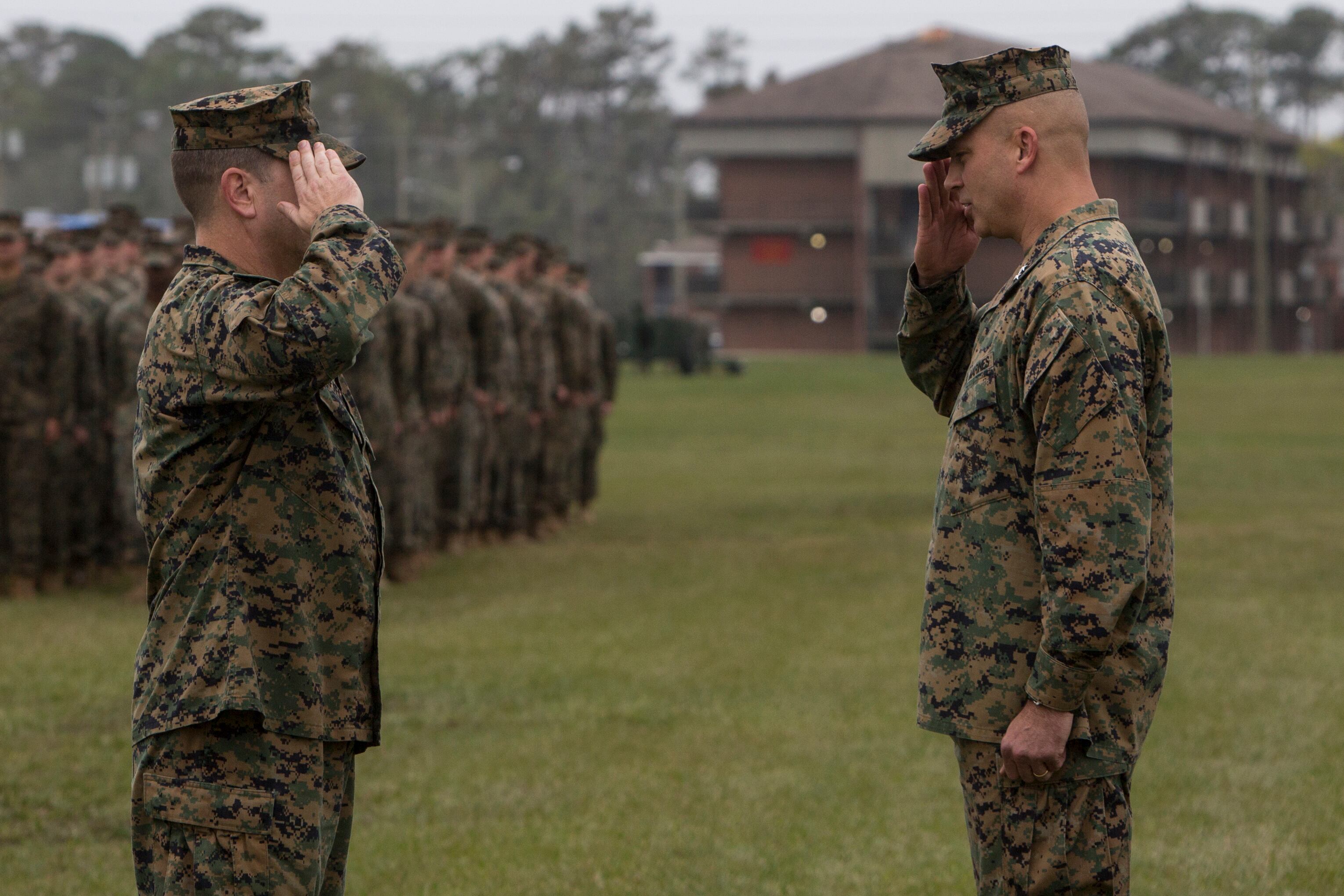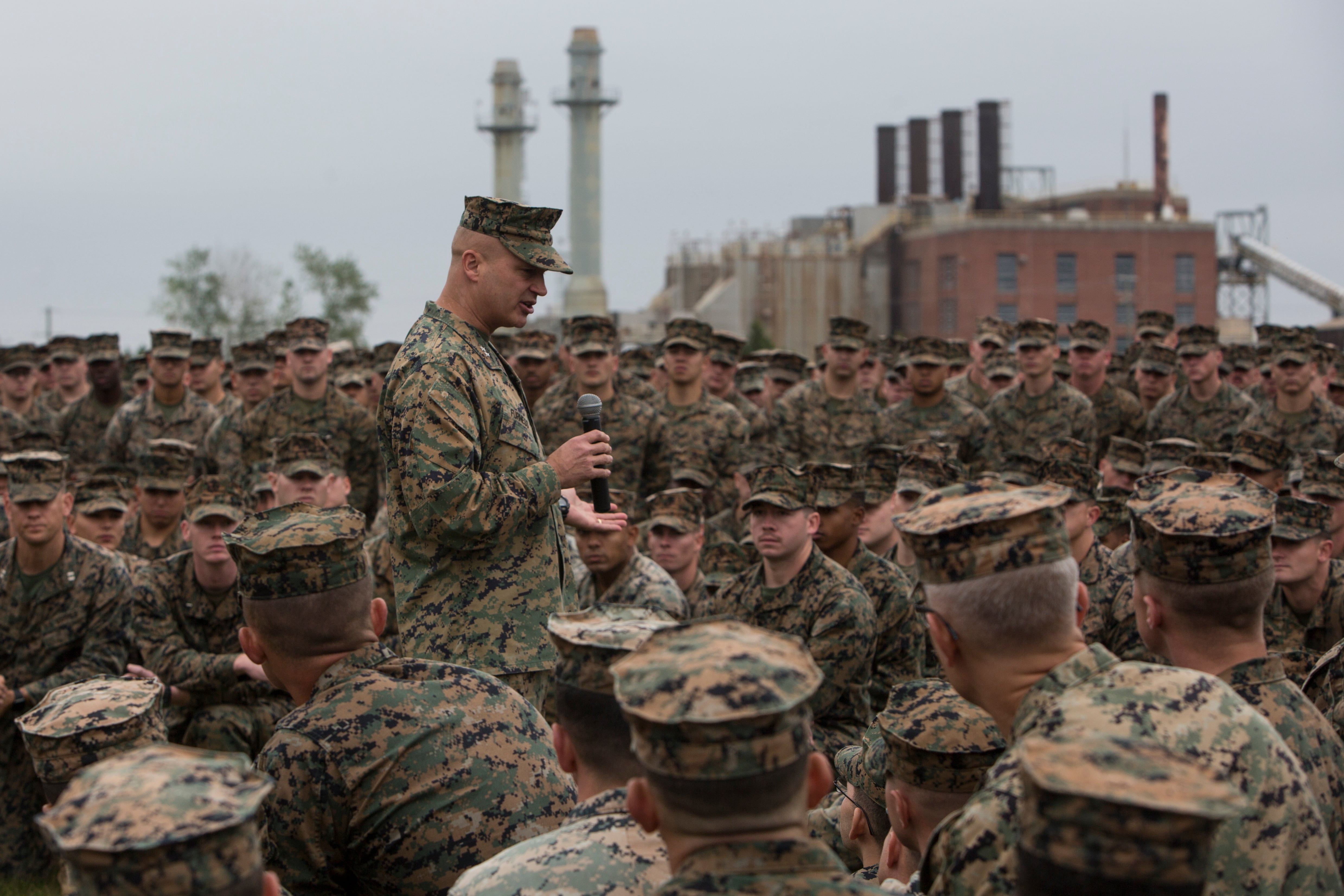The following is an opinion piece and does not necessarily reflect the views of Marine Corps Times or its staff.
At this point in time, you’d have to be on another planet to not at least have heard of the policy letter by the commanding general of 2nd Marine Division, Maj. Gen. David Furness. You also probably have heard the reaction of many Marines and anonymous individuals. While I am not a current member of 2nd Marine Division at Camp Lejeune, North Carolina, I also have thoughts on this topic.
It’s important to understand the context behind this policy. The theme is attention to detail, accountability and discipline. Why? Why is it important for us as Marines, or those in the joint force, to be accountable for our actions and to have the self-discipline our leaders demand?
The current National Security Strategy, or NSS, recognizes a return of great power competition, stating that China and Russia are fielding military capabilities “designed to deny America access in times of crisis and to contest our ability to operate freely in critical commercial zones during peacetime.” What this means for us is an operating environment where information operations, cyberspace and the electromagnetic spectrum are all contested — where the ability to share information and communicate between echelons of command will often be degraded, if functional at all.
RELATED

The senior enlisted adviser to the chairman of the Joint Chiefs of Staff, Command Sgt. Maj. John Troxell, has stated that our noncommissioned and petty officers are our greatest competitive advantage. As he has said, we are “empowered to execute disciplined initiative within their commander’s intent, apply agile, adaptive thinking and accomplish the mission, whether that be in combat, during training, in garrison.”
What both of these leaders and the NSS call for is a focus on the discipline necessary for conflict with a peer adversary. In a degraded environment where entire units may be decimated, our junior enlisted and company grade officers will lead the fight. They will not have the luxury of clear communication with higher headquarters. They will have to execute based on the intent they were last given, and demonstrate the discipline and inspirational leadership necessary to go on when all signs point to retreating.
In 2001 I was a young staff sergeant and had just reported to 1st Battalion, 7th Marines, via a permanent change of station from Hawaii. The first morning at Twentynine Palms, I went to Subway for lunch in civilian clothes. When I went inside, a corporal told me that I had to leave and come back when I was in appropriate civilian attire.
My crime that day was being in flip flops, which had become my norm while in Hawaii. That corporal was not interested in my rank, nor was I interested in debating the policy: He was right. The standard applied to all, regardless of rank, and I appreciated that Marine setting me straight.
We all joined the Corps for many different reasons, but none of which to lower the standard or blemish our history. What Maj. Gen. Furness is asking us is nothing we didn’t already sign up for. Basic customs and courtesies, a professional appearance, and to be that “worthy successor” our 13th commandant, Gen. John Lejeune, asked of us via his birthday message.
The Superbowl champion coach Vince Lombardi was once asked what it took to be No. 1. He said, “Winning is not a sometime thing; it’s an all the time thing. You don’t win once in a while; you don’t do things right once in a while; you do them right all of the time. Winning is a habit. Unfortunately, so is losing.”
For us, victory comes at a different cost, and it begins with doing the right thing in garrison.
While the anonymous hero and social media expert will continue to flex faceless muscles while mocking our call to standards, let’s take this policy letter as a call to get back to brilliance at the basics, to empower NCOs to lead and set the standard of excellence.
The operating environment of the future may call for it — our Corps deserves it, our Nation demands it, and the Marines on the left and right of us rely on it.
Master Gunnery Sgt. Scott H. Stalker is command senior enlisted leader for the National Security Agency and United States Cyber Command.





